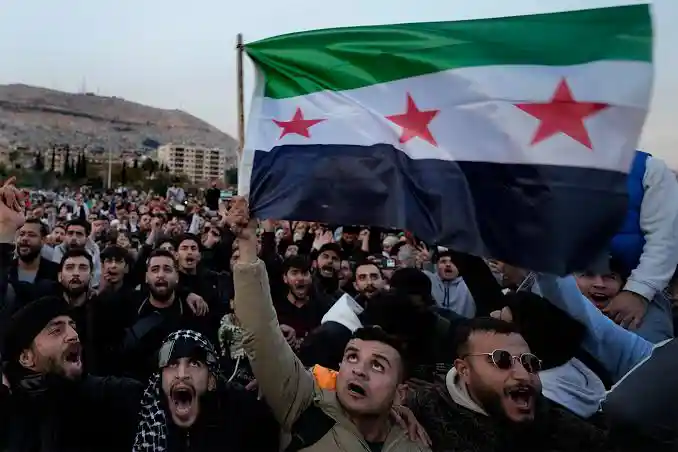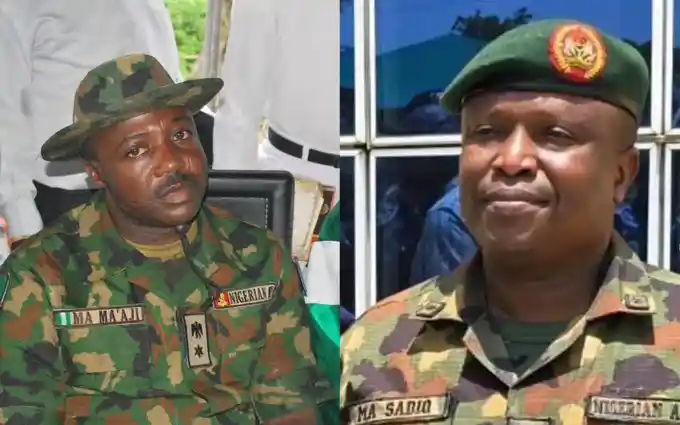TJ News reports that Israeli troops recently entered the UN-patrolled buffer zone that separates Israeli and Syrian forces on the Golan Heights, sparking fresh tensions in the region.
On December 8, 2024, Lebanese people were seen celebrating the takeover of Damascus by Syrian rebel fighters in the northern Lebanese city of Tripoli.
Read Also:President Yoon Impeached by South Korean MPs After Martial Law Controversy
The leader of the Islamist-led rebels who seized power in Damascus, Abu Mohammed al-Jolani, now using his real name Ahmed al-Sharaa, criticized Israel on Saturday for its incursion into southern Syria.
He described the move as a clear violation of the 1974 armistice agreement, stating, “The Israelis have clearly crossed the disengagement line in Syria, which threatens a new unjustified escalation in the region.”
However, al-Sharaa also emphasized that Syria is too exhausted for fresh conflict, citing the toll that years of war and conflict have taken on the country. He communicated this sentiment through a statement on the rebels’ Telegram channel, saying, “The general exhaustion in Syria after years of war and conflict does not allow us to enter new conflicts.”
Israel, which has occupied most of the strategic plateau since 1974, defended its actions as self-defence amid the political uncertainty in its northeastern neighbor.
Since the overthrow of President Bashar al-Assad by HTS-led forces on Sunday, Israel has conducted numerous airstrikes on Syrian military assets, according to war monitors.
Israel’s Defence Minister Israel Katz has justified these actions, stating that they are aimed at destroying “strategic capabilities that threaten the State of Israel.
The fall of Syria’s dictatorship was significantly influenced by Israel’s concerted efforts to dismantle Hamas and Hezbollah, two militant groups that had long provided support to the Syrian regime.
Israel’s strategic airstrikes and military operations targeted key infrastructures and leaders of both Hamas and Hezbollah, weakening their operational capabilities and reducing their influence in the region.
Hamas, primarily operating out of Gaza, had long been involved in launching rocket attacks against Israel and supporting anti-Israel activities.
Hezbollah, a powerful militant and political organization based in Lebanon, had been a staunch ally of the Syrian government, offering military aid and fighters to support Bashar al-Assad’s regime during Syria’s civil war.
As Israel intensified its military actions, the capabilities of both Hamas and Hezbollah to back the Syrian regime diminished.
This significantly undermined the regime’s ability to maintain its grip on power amidst internal dissent and rebellion. The combined loss of these critical allies created a vacuum that the Assad regime could not fill, contributing to its eventual downfall.
Moreover, the continued pressure from international sanctions and internal uprisings further weakened the Syrian government’s control.
The loss of support from Hamas and Hezbollah meant that the regime was increasingly isolated on both domestic and international fronts. This isolation was exacerbated by mounting opposition from within Syria, as various rebel groups gained strength and territory.
In the midst of this geopolitical turbulence, the rebel forces in Syria, led by groups such as Hayat Tahrir al-Sham (HTS), capitalized on the weakened state of the regime.
They managed to overthrow President Bashar al-Assad, marking a significant shift in the Syrian political landscape.




